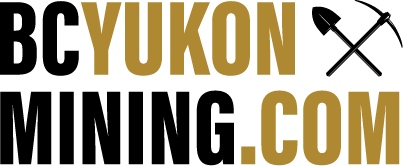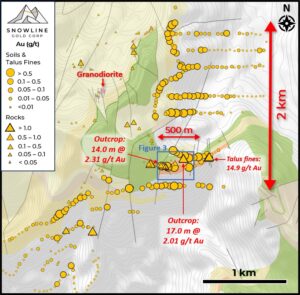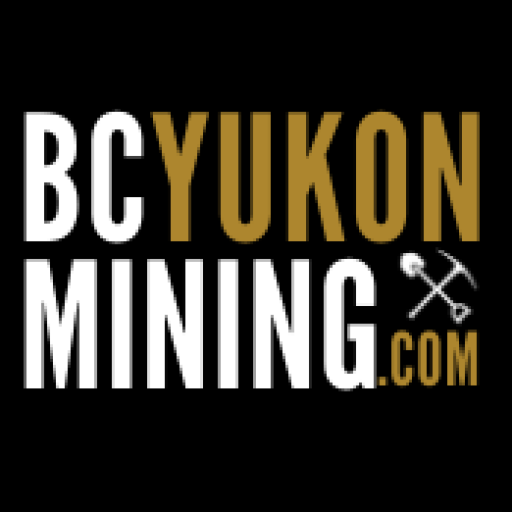Originally published on July 1, 2019 to www.thestar.com/vancouver

VANCOUVER — A festering dispute between a First Nation and Vancouver-based mining company is expected to ramp up again this week, after Indigenous attempts to appeal an exploratory mining permit were struck down by the BC Supreme Court last month.
The Tsilhqot’in Nation says it will continue to protect what it considers a sacred lake from devastating environmental and cultural heritage impacts and is calling for a safe resolution to prevent Taseko Mines Ltd. (TML) from drilling in the area.
On June 13, the company gave a two-week notice that it plans to begin exploratory drilling by Tuesday in an area west of Williams Lake at Teztan Biny — or Fish Lake — after the Supreme Court refused an appeal of a B.C. court ruling which allowed Taseko to proceed.
The nation said on Monday it will assemble for peaceful action to prevent the drilling program.
Tsilhqot’in Tribal Chairman Chief Joe Alphonse told Star Vancouver they are choosing to stage the protest in a safe place Tuesday where they can “control the environment” because of worries about a possible escalation in the conflict if citizens are left to vent their frustration individually.
This will be the latest confrontation in a legal battle extending almost 25 years between the Tsilhqot’in Nation and Taseko.
Here’s what you need to know ahead of Tuesday.
The dispute
Taseko has done exploration work in area for the last 20 years. In 2008, the company proposed the New Prosperity Mine — a $1.5 billion open-pit gold and copper mine roughly 125 kilometres north of Williams Lake in the heart of Tsilhquot’in territory. It would drain Fish Lake, turning it into a tailings pit.
The Tsilhqot’in Nation say the area is of immense spiritual, environmental and cultural significance, arguing Fish Lake is one of B.C.’s most productive wild trout lakes and the surrounding area is an active cultural school and sacred site.
The mine would be inside the nation’s traditional territory including 300,000 hectares of wilderness and wildlife habitat which is constitutionally protected, just outside of its title lands which stretch 1,900 square kilometres. It falls within the bounds the nation has constitutionally protected rights to hunt, fish and trap.
Taseko has said the drilling expected Tuesday is an attempt to prove the lake will not be harmed by the mine. Star Vancouver contacted Taseko for comment but the request was not returned by publication time.
The federal government has rejected the mine’s proposal twice, though the province approved it. The most recent permit in question was approved by the BC Liberal government on their last day in office while the First Nation was under a 2017 wildfire evacuation order.
Taseko Mines donated $137,450 to the BC Liberals between 2008 and 2017, according to Elections BC. CEO Russell Hallbauer was listed as the principal officer for those donations. A person named Russell Hallbauer also donated more than $50,000 to the party from 2008 to 2017.
For decades, the Tsilhqot’in Nation have legally fought to ensure their Indigenous rights are respected, resulting in Canada’s first declaration of land title by the Supreme Court in 2014.
The constant barrage of legal challenges will not wear down Indigenous opposition to the project, according to the nation who have argued the company is trying to deplete their resources by battling in the courts.
They want the company to stop trying to advance the mine and acknowledge it won’t get built.
They’ve also asked the B.C. NDP government to uphold its commitment to the UN Declaration on the Rights of Indigenous People’s (UNDRIP) by preventing the violation of human rights it says would be caused by mining Fish Lake. A petition to Premier John Horgan calling on the government to stop the mine exploration has garnered almost 10,000 signatures.
The players
Taseko has been around since 1966 and is the owner and operator of the Gibraltar Mine, the second largest open pit copper mine in Canada. The company has three projects in “advanced” stages which give the company a diverse commodity pipeline, according to their website.
The Tsilhqot’in National Government was established in 1989 to meet the needs of six Indigenous communities near Williams Lake, B.C. When rampant wildfires blazed through the nation’s territory in 2017, leadership made the choice not to sign and authorize an evacuation order for their citizens which prompted faceoffs with the RCMP.
A Tsilhqot’in Nation report on the fires outlined that the provincial evacuation order was not applicable to the reserve land and documented how federal and provincial officials encountered questions of jurisdiction for the first time.
The history in the courts
Attempts to both stop and push forward mining exploration in Fish Lake have landed in the courts multiple times.
While the B.C. government issued environmental approval for Taseko’s mine proposal — initially known as the Prosperity Project — it was rejected twice by the federal government in 2010 and again in 2014.
Court documents show the federal government was concerned about the effect on fish, habitat, grizzly bears, the Tsilhqot’in people’s use of their title lands, their cultural heritage and the nation’s Aboriginal rights.
In 2016, two years after Ottawa rejected the project for the second time, the company began preparing a new mining exploration program for the same area.
Despite opposition from Tsilhqot’in, the province approved the permit for that work in July 2017 with conditions on the company including; keeping clearing to a minimum; revegetating all disturbed areas with wildlife forage when possible; and that it communicate weekly with the nation about its work.
That sent the First Nation back to court several times. However, on June 13, the Supreme Court of Canada dismissed the latest appeal of a BC Court of Appeal ruling which upheld the drilling permit in March.
Where are we now?
Since the Supreme Court has refused to hear the appeal of a B.C. court ruling which allowed Taseko to proceed, the mining company has said it will begin exploratory drilling starting on Tuesday.
The current permit will allow Taseko to move forward with an extensive drilling project that authorizes 76 kilometres of new or modified road and trail to be cleared, 122 drill holes, 367 excavated test pits, 20 kilometres of seismic lines and a 50-person work camp near Fish Lake.
Tribal chairman Chief Joe Alphonse has been urging the premier and the province to uphold UNDRIP and live up to its commitments to Indigenous peoples saying that the mine exploration would be an international violation of human rights.
He told Star Vancouver on Monday Taseko’s insistence on pressing forward with the project despite two National Energy Board rejections is a mockery of Indigenous consultation.
“Taseko themselves, they know that this project will never come to fruition. But this is a chance to give the Tsilhqot’in people the finger for not supporting them, for beating them twice (in the courts),” he said.
On Monday, the Tsilhqot’in Nation said in a release that they are assembling for peaceful action “to exercise their Aboriginal rights and ancestral laws” to protect the area of profound cultural and spiritual significance.
According to the release, on June 27, Taseko wrote to advise them it would be mobilizing heavy equipment starting on Monday and that ground disturbance work would begin on Wednesday. The company’s “refusal” to consider the request by the nation to halt the program has forced the Tsihquot’in Nation to take action.
/https://www.thestar.com/content/dam/thestar/vancouver/2019/07/01/the-tsilhqotin-nation-is-facing-off-with-taseko-mining-company-again-heres-what-you-need-to-know/tsilhqot_in_nation_3.jpg)
/https://www.thestar.com/content/dam/thestar/vancouver/2019/07/01/the-tsilhqotin-nation-is-facing-off-with-taseko-mining-company-again-heres-what-you-need-to-know/fish_lake.jpg)
/https://www.thestar.com/content/dam/thestar/vancouver/2019/07/01/the-tsilhqotin-nation-is-facing-off-with-taseko-mining-company-again-heres-what-you-need-to-know/tsilhqot_in_nation_3.jpg)
/https://www.thestar.com/content/dam/thestar/vancouver/2019/07/01/the-tsilhqotin-nation-is-facing-off-with-taseko-mining-company-again-heres-what-you-need-to-know/fish_lake.jpg)
/https://www.thestar.com/content/dam/thestar/vancouver/2019/07/01/the-tsilhqotin-nation-is-facing-off-with-taseko-mining-company-again-heres-what-you-need-to-know/tsilhqot_in_nation_3.jpg)
“We are deeply concerned about this escalating conflict. As a Nation, our top priority is the safety and security of our own members, and TML employees and contractors. That is why our Nation must take peaceful action to prevent this situation from getting out of control,” Alphonse said in the release.
With files from Jesse Winter, Ainslie Cruickshank and The Canadian Press
Melanie Green is a Vancouver-based reporter covering politics. Follow her on Twitter: @mdgmedia









